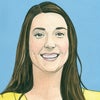
Credit: Lara Tomlin
Jennifer Harding was in her fourth year as a doctoral student at the University of Texas at Austin when the 2018 federal budget was finalized. A marine geophysicist, she had spent years training to use a National Science Foundation–funded research vessel to image subduction zones underneath the seafloor. Then she learned the NSF planned to sell the vessel, cutting off her access to new data. At 26 and in her final year of graduate school, Harding is trying to decide what to do next and expects she may have to find a job in the oil and gas industry. “The rug is being pulled out from under me,” Harding says.
Young scientists such as Harding run a gauntlet that begins as soon as they don their undergraduate commencement caps. They cope with moving across countries, continents or oceans for Ph.D. programs, postdoctoral appointments or professorships. They contend with long-distance relationships and family stresses, including agonizing over when or whether to have children despite their uncertain future. They compete for scarce funding. Some leave academia for industry careers, which present their own set of challenges and, some argue, have a negative reputation among academics. And these are all problems that face those fortunate enough to be accepted into graduate research programs in the first place.
On supporting science journalism
If you're enjoying this article, consider supporting our award-winning journalism by subscribing. By purchasing a subscription you are helping to ensure the future of impactful stories about the discoveries and ideas shaping our world today.
Early-career research is in dire need of reforms, asserts an April report by the National Academies of Sciences, Engineering, and Medicine. According to the report, in 2016 the average researcher was 43 years old before securing his or her first independent grant from the National Institutes of Health, compared with an average age of 36 in 1980.
Several scientists shared with us their most common frustrations, struggles, challenges—and joys.
MOVING

Credit: Lara Tomlin
Ashley Juavinett,28, postdoctoral researcher in neuroscience at Cold Spring Harbor Laboratory
“So few people within academia talk about it because it's so expected: ‘Of course, you'll move across the country for a postdoc because that's what everybody does.’ The move definitely took a toll on my relationship. My partner is in the Bay Area. There was, for a long time, this question of whether she should move to New York instead. It's a hard call, especially in a same-sex couple. We don't know whose career comes first.”
MONEY
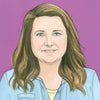
Credit: Lara Tomlin
Alexis Weinnig,28, third-year Ph.D. student in biology at Temple University
“We work probably between 60 and 80 hours a week, and we get paid at a salary of probably 25 hours a week. The system has just not kept up with the cost of living. I love what I'm doing, but I would also like to be compensated for the level of work that I'm doing.”
Save Kumwenda,41, Ph.D. student in epidemiology at the University of Malawi

Credit: Lara Tomlin
“The biggest challenge is to get funding, let alone enough funding. Most grants assume that the institutions where you are applying from have some basic infrastructure, especially related to research involving the lab. But when you get the funding, it is not enough, because most of the equipment is not available and if it is available, it is outdated. Using it makes your results questionable and difficult to publish in high-impact journals.”
CULTURE

Credit: Lara Tomlin
Skylar Bayer,32, marine ecologist and 2018 John A. Knauss Marine Policy Fellow
“A lot of the way science is set up is still very feudal. As a student, the person in charge of you is your adviser. If you don't have a good relationship with your adviser, you're screwed. There's not a lot of accountability. You are not a paid employee, so you don't have the same rights. You kind of need champions who can throw their weight around for you.”
FAMILY

Credit: Lara Tomlin
Jacque Pak Kan Ip,35, postdoctoral researcher in neuroscience at the Massachusetts Institute of Technology
“We are planning to have kids. I cannot ask my wife to sacrifice her career again. But it has taken me a lot of time to do my research already. When she is pregnant and might need help, I might need to dial it back to help her. So we hesitate. A tenure-track position would be much more stable. Maybe at that time, we could plan to have a child. But then, I am 35; she is 34. The time window is getting narrower for us to have children.”

Credit: Lara Tomlin
Daniel Gonzales,27, NSF Graduate Research Fellow in Applied Physics at Rice University
“To be competitive on the academic job market one day, I need to continue on a path of ultraexcellence. I already have a publication in a high-impact journal, but I better get one more out before I graduate. I better choose a prestigious postdoctoral research position, not [here] in Texas. I better receive awards as a postdoc. I better continue to publish flashy science in top journals as a postdoc. But I have a family; I have two kids (one and three years old). Moving is hard, and working on a postdoc salary is hard. I know I have what it takes, but what will be the toll on my family?”
INDUSTRY VS. ACADEMIA

Credit: Lara Tomlin
Maryam Zaringhalam,30, molecular biologist and AAAS Science & Technology Policy Fellow
“I knew pretty early on that I didn't want an academic career and learned to deal with a sense of shame about that. As an Iranian woman in science, I felt an obligation to continue down the pipeline because I know it's a leaky one. But I kind of resent the idea of a leaky pipeline at all because it privileges academic trajectories. There is a lot of space for people who have an academic background to go into careers in policy, advocacy, communication or industry, but those are looked down on as alternative.”
GETTING JOBS, FELLOWSHIPS OR INTO SCHOOL

Credit: Lara Tomlin
Sophia Nasr, second-year Ph.D. student in cosmology at the University of California, Irvine
“The most devastating experience I ever had was applying for an NSF fellowship. I put my whole heart into it. I think my application was solid, and it just took one reviewer to flush it all down the drain. I found out right in the middle of my qualifying exams, so it was just crushing to my confidence. I've bounced back from that, but as a theorist, it's kind of hard to look for other places that will even offer me funding. For me, the NSF was where it was at, so it was heartbreaking.”
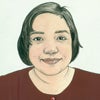
Credit: Lara Tomlin
Sneha Dharwadkar,30, wildlife biologist in Maneri, India
“Right now I am applying for Ph.D. programs in the U.S., and I am getting rejections. Most of the professors are telling me, ‘You need to have publications before getting into a Ph.D. program.’ But I am not in academia yet, so it is very hard to get a proper publication.”
REPRESENTATION AND INEQUALITY

Credit: Lara Tomlin
Carina Fish,26, second-year Ph.D. student in marine biogeochemistry at the University of California, Davis
“As someone who studies climate and the ocean, I used to get worked up that I wasn't doing enough to relieve some of the systemic and institutional racism my community faces. I was able to reconcile that by looking for the intersection of the two. I see my calling to be an advocate for environmental justice, especially given that climate change is exacerbating lots of social inequities.”
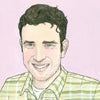
Credit: Lara Tomlin
Angel Adames-Corraliza,29, assistant professor of atmospheric sciences at the University of Michigan
“I am Puerto Rican, and there are so few of us in the science community that I feel like I have to represent my people. I want to pave the way for future generations of Latinos and Puerto Ricans and other underrepresented minorities. If I am faculty, I am at a certain position of power, so I can advocate for diversity in science and women in science.”
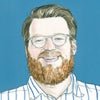
Credit: Lara Tomlin
Jack Nicoludis,28, postdoctoral fellow in biochemistry at the University of California, San Francisco
“As a postdoc, I'm likely going to apply to faculty positions. As a queer scientist, that's something I am a little unsure about. The mantra is that you apply to as many as you can. But these might be in states that don't recognize sexual orientation as a protected identity. I will have to decide whether I can see myself living in a place that might not be tolerant of my sexual orientation, because it might be the only place I can get a job.”